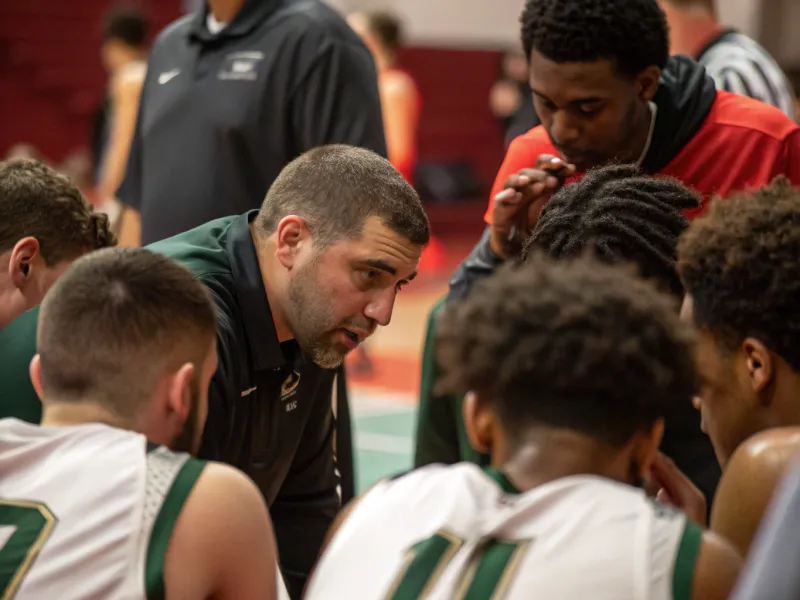28 Phrases That Will Trigger A Narcissist Like Nothing Else
Ever feel like you’re tiptoeing around someone, afraid that one wrong word might spark an argument or a dramatic meltdown? That’s often what it’s like dealing with a narcissist.
Beneath the charm and confidence is a surprisingly fragile ego—and certain phrases can send it spiraling.
So, let’s break down 30 things that tend to hit a nerve with narcissists. Whether it’s a romantic partner, a friend, or that one coworker who always turns things back to themselves, knowing these triggers might just help you keep your cool and stay a step ahead.
1. “You always think you’re right, don’t you?”

This phrase, though seemingly innocent, hits a narcissist where it hurts. Narcissists thrive on being perceived as infallible, and any suggestion otherwise can provoke an intense response. The idea that their judgment or perspective could be flawed is an affront to their carefully constructed self-image.
When confronted with this phrase, they might lash out, deflect the blame, or attempt to invalidate your opinion entirely. Their need for dominance in conversations means that questioning their accuracy or decision-making can feel like an existential threat.
This phrase reminds them that others can see through their facade of perfection, which can be both unsettling and infuriating for someone who cannot tolerate criticism. If you choose to use this line, be prepared for the fallout and ensure you’re equipped to stand your ground.
2. “Not everything is about you.”

Few statements can make a narcissist’s blood boil like this one. Narcissists often believe they are the center of the universe, so reminding them that the spotlight isn’t permanently fixed on them can feel like a personal attack.
This phrase challenges the narcissist’s delusion of grandeur, forcing them to confront the uncomfortable truth that others also hold importance. It strips away the illusion of their centrality and can lead to defensive maneuvers aimed at regaining control.
Understanding this dynamic helps you navigate social situations with narcissists more effectively. If they begin to monopolize conversations or draw attention away from others, this phrase can serve as a reality check—albeit one they’re unlikely to appreciate.
3. “Can’t you just be happy for them?”

This question exposes a narcissist’s struggle with genuine empathy. Narcissists often have difficulty connecting with others’ emotions unless it serves their interests.
By highlighting their inability to share in others’ joy, you’re pointing out a critical flaw in their emotional makeup. This can leave them feeling exposed and vulnerable, as empathy is a trait they often pretend to embody but rarely understand.
Such a confrontation can be met with irritation or dismissal, as narcissists are more comfortable focusing on their own experiences and achievements. However, using this phrase can shed light on their emotional limitations, highlighting a key area they often prefer to keep hidden.
4. “It’s not all about the praise, you know.”

Narcissists are often addicted to admiration, and this phrase cuts to the core of their need for constant validation. It’s a reminder that their worth doesn’t solely stem from external approval.
The idea that praise shouldn’t be their primary goal might seem unfathomable to them. This can trigger feelings of inadequacy or even anger, as it challenges the foundation of their self-esteem.
It’s important to handle such conversations delicately, as they can quickly devolve into arguments or attempts to undermine your credibility. However, highlighting their dependence on flattery can be a step towards healthier interactions, especially in professional settings.
5. “Maybe you could learn from this mistake.”

To a narcissist, admitting to a mistake is akin to admitting defeat. This phrase suggests growth through error, something they find challenging to accept.
Narcissists often equate mistakes with weakness, so framing errors as learning opportunities can be unsettling for them. They may respond with defensiveness or attempts to shift the blame onto others.
Understanding this reaction can help you approach the situation with patience and tact. Encourage self-reflection and growth without triggering a sense of inadequacy, and you may help them see mistakes as stepping stones rather than stumbling blocks.
6. “Are you sure about that?”

This seemingly innocuous question can be incredibly triggering for a narcissist, as it challenges their confidence and decision-making prowess.
By questioning their certainty, you invite them to consider the possibility of flaws in their reasoning—something they are often unwilling to acknowledge. The need to maintain an image of unshakeable confidence means they may react with irritation or attempts to reassert their dominance.
When dealing with a narcissist in a professional setting, this phrase can be a strategic tool to prompt reflection and foster a more collaborative environment. However, be prepared for potential pushback as they navigate the discomfort of self-doubt.
7. “Why do you always need to be in control?”

This question brings attention to a narcissist’s deep-seated need for dominance, challenging their desire to dictate every situation.
Highlighting their control issues can lead to defensiveness, as it touches on a core aspect of their personality. They might attempt to downplay the concern or redirect the conversation to maintain their authority.
Understanding their need for control is crucial in both personal and professional interactions. By gently questioning their motives, you can encourage them to consider the benefits of collaboration and shared decision-making, even if they’re reluctant at first.
8. “Let’s talk about something else for a change.”

Narcissists often steer conversations back to themselves, so redirecting the focus can feel unsettling.
This phrase serves as a reminder that not every discussion should revolve around their experiences or achievements. It encourages a broader perspective, prompting them to consider other topics and viewpoints.
However, be prepared for resistance or attempts to regain control of the conversation. By persistently steering discussions towards diverse subjects, you can foster more balanced interactions and reduce their dominance in social settings.
9. “Try to put yourself in their shoes for once.”

Encouraging a narcissist to empathize with others can be a challenging endeavor, as they often prioritize their own emotions and needs.
This phrase invites them to consider perspectives outside their usual focus, highlighting the importance of empathy in building meaningful connections. It can reveal their struggle to genuinely understand others, prompting either introspection or defensiveness.
While it may not immediately change their behavior, consistently encouraging empathy can gradually shift their perspective. Just be ready for potential pushback, as the journey towards understanding others is one they may resist.
10. “You can’t do it all by yourself.”

Narcissists often pride themselves on their self-sufficiency, making this phrase a tough pill to swallow.
By acknowledging their limits, you challenge their belief in their ability to handle everything alone. This can lead to feelings of inadequacy or frustration, as they grapple with the idea of needing assistance.
Nevertheless, recognizing the value of collaboration and support can foster more balanced relationships. Encourage them to accept help and acknowledge others’ contributions, even if they resist at first.
11. “How do you really feel?”

This question invites introspection, often causing discomfort for narcissists who prefer projecting confidence.
Encouraging them to explore their genuine emotions can lead to breakthroughs in self-awareness, though it’s frequently met with resistance. They might deflect or dismiss the question, avoiding the vulnerability that comes with genuine reflection.
Despite the challenges, fostering a space for honest communication can gradually build trust and understanding. Encourage them to open up about their feelings, even if it takes time for them to lower their defenses.
12. “It’s okay to admit when you’re wrong.”

For narcissists, acknowledging faults can feel like an attack on their identity. This phrase challenges their perfectionist tendencies, suggesting vulnerability as a path to growth. It can provoke defensive reactions as they struggle to reconcile their self-image with the reality of imperfection.
While it may not lead to immediate acceptance, consistently encouraging accountability can promote healthier interactions. Emphasize the value of learning from mistakes, even if it takes time for them to embrace this perspective.
13. “Why can’t you be more like…”

Comparisons can be kryptonite for narcissists, highlighting perceived inadequacies. This sentence forces them to confront their insecurities, often leading to resentment or attempts to undermine the comparison. They might react defensively, trying to regain a sense of superiority.
While comparisons might seem tempting, they rarely lead to constructive outcomes. Focus on individual strengths and unique qualities, fostering an environment where they feel valued without the need for constant comparison.
14. “Let’s focus on someone else’s achievements.”

Redirecting attention away from a narcissist can trigger feelings of neglect. They might resist the shift in focus, striving to reclaim the spotlight.
Encourage a culture of shared recognition, emphasizing the value of diverse contributions. While narcissists may initially resist, persistent efforts to balance attention can lead to more harmonious interactions.
15. “I want to know the real you.”

Encouraging authenticity can be daunting for narcissists who hide behind facades. This phrase invites them to lower their defenses, revealing their true selves. It may be met with skepticism or avoidance, as they fear exposing vulnerabilities.
Despite initial resistance, fostering genuine connections can ultimately lead to more meaningful relationships. Encourage honesty and openness, reassuring them that their authentic self is valued and accepted.
16. “Perfection isn’t everything.”

Narcissists often hold themselves to impossibly high standards, making this phrase both challenging and liberating.
It suggests that imperfection is acceptable, encouraging them to embrace flaws and learn from them. They may initially reject this idea, clinging to their pursuit of perfection.
Nonetheless, promoting a mindset of growth and self-acceptance can lead to more balanced perspectives. Help them see the value in setting realistic goals, even if it means letting go of the illusion of perfection.
17. “I’m giving you this feedback because I care.”

Constructive criticism can be difficult for narcissists to accept, as they often equate it with personal failure. This frames feedback as an act of care, emphasizing support and growth. It may still be met with resistance, as they struggle to separate their self-worth from external evaluation.
Encourage a culture of learning and improvement, highlighting the benefits of feedback for personal development. While they may initially resist, consistent support can gradually shift their perspective.
18. “It’s not all about individual glory.”

Encouraging teamwork can be challenging for narcissists who prioritize personal accolades. They may resist, fearing a loss of individual recognition.
Promote a culture of teamwork and mutual support, emphasizing shared success over individual achievement. Though they may initially resist, consistent encouragement can lead to more collaborative behavior.
19. “Sometimes it’s better to listen.”

Narcissists often dominate conversations, making this phrase a gentle reminder to value others’ voices.
It encourages active listening and empathy, though it may be met with resistance as they struggle to relinquish control. They might dismiss the suggestion, preferring to steer the conversation back to themselves.
Promoting a culture of active listening can foster more balanced interactions, emphasizing the importance of diverse perspectives. Encourage them to appreciate the art of listening, even if it takes time for them to embrace it.
20. “Humility is a strength, not a weakness.”

This phrase challenges the narcissist’s perception of humility as a flaw. It promotes the idea that acknowledging limitations can lead to growth and resilience. They might resist this concept, fearing a loss of self-worth.
Encourage them to see humility as an asset, fostering environments where vulnerability is embraced. While it may take time, persistent reinforcement can help them appreciate the strength in being humble.
21. “I’m interested in the truth, not just what you want me to hear.”

Use this phrase if you want to challenge a narcissist’s tendency to manipulate narratives. It emphasizes the importance of honesty and transparency, which they may find threatening. They might respond with deflection or attempts to control the narrative.
Promote a culture of sincerity and authenticity, encouraging open dialogue. While they may initially resist, consistent efforts can gradually shift their approach to communication.
22. “Let’s focus on what’s achievable.”

Narcissists often set unrealistic goals, making this phrase a grounding reminder. It encourages practical thinking and realistic planning, which they might resist as it challenges their grandiose vision. They may react with irritation, struggling to adjust their expectations.
Promote a culture of realistic goal-setting, emphasizing achievable success. While they may initially resist, persistent encouragement can lead to more grounded perspectives.
23. “Good things come to those who wait.”

Patience is often a challenge for narcissists, who seek instant gratification. This phrase encourages delayed gratification, promoting a more patient mindset. They might resist this idea, preferring immediate results.
Encourage a culture of patience and perseverance, emphasizing the long-term benefits of waiting. While they may initially resist, consistent reinforcement can gradually shift their perspective.
24. “Your true self is enough.”

Narcissists often hide behind facades, making this phrase a reassuring reminder. It encourages embracing authenticity, emphasizing the value of being genuine. They may resist, fearing vulnerability and judgment.
Promote a culture of acceptance and self-expression, reassuring them that their authentic self is valued. While it may take time, persistent encouragement can help them embrace their true identity.
25. “Gratitude can change your perspective.”

Narcissists often focus on what they lack, making gratitude a challenging concept. This encourages appreciation for existing blessings, promoting a more positive outlook. They might resist, dismissing gratitude as irrelevant.
Promote a culture of gratitude and appreciation, emphasizing its transformative potential. While they may initially resist, consistent reinforcement can gradually shift their mindset.
26. “Take a moment to reflect on your actions.”

Self-reflection can be daunting for narcissists, who prefer external validation. This phrase encourages introspection, promoting personal growth and accountability. They might resist, fearing vulnerability and self-critique.
Promote a culture of self-awareness and growth, emphasizing the benefits of introspection. While they may initially resist, consistent encouragement can foster a more reflective mindset.
27. “It’s okay to say you’re sorry.”

Apologies can be challenging for narcissists, who fear admitting fault. This encourages accountability and reconciliation, promoting healthier relationships. They might resist, fearing a loss of self-worth.
Promote a culture of forgiveness and understanding, emphasizing the strength in apologizing. While they may initially resist, consistent reinforcement can help them embrace accountability.
28. “Try seeing it from a different angle.”

Narcissists often struggle with perspective-taking, making this phrase a gentle nudge. It encourages open-mindedness and empathy, promoting a broader understanding of situations. They might resist, preferring their own viewpoint.
Promote a culture of curiosity and exploration, encouraging diverse perspectives. While they may initially resist, consistent encouragement can foster a more open mindset.







